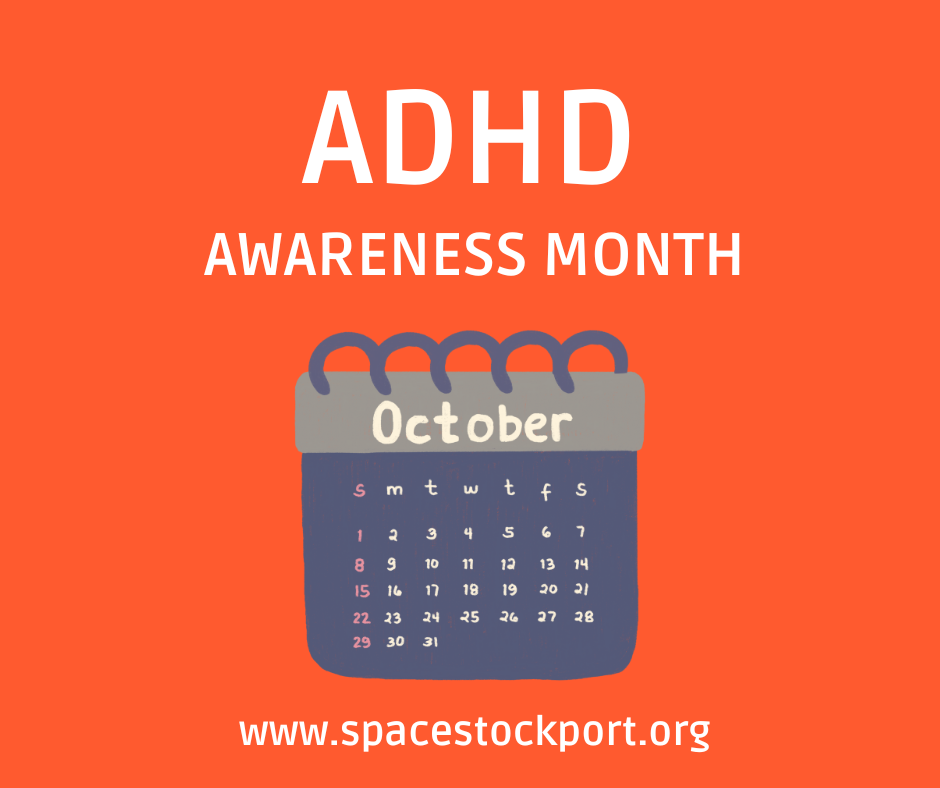October is ADHD Awareness Month. Our team do our best to raise awareness and celebrate the strengths of ADHD all year round, but in October we get a little bit louder. There are those who would question the point of having an awareness month, when of course our children have ADHD all year round, but the point of an awareness month is to amplify the message. As a small charity our voice can only go so far, but when lots of small charities and other organisations all shout together at the same … [Read more...] about Happy ADHD Awareness Month
ADHD Awareness Month
Happy ADHD Awareness Month!
October is officially ADHD Awareness Month. Here at S.P.A.C.E. we like to celebrate ADHD Awareness all year round, but in October everybody else joins in and the message gets a lot louder. So why is ADHD Awareness Important? Unfortunately ADHD, or Attention Deficit Hyperactivity Disorder, to use its official name, is a condition surrounded in myths, misinformation and stigma. ADHD Awareness Month helps people learn new things, establish new contacts and generally improve the lives of … [Read more...] about Happy ADHD Awareness Month!
ADHD Awareness Month 2021
October is ADHD Awareness Month! October is ADHD Awareness Month. Here at S.P.A.C.E. we celebrate ADHD and raise awareness all year round, as do our families and lots of other organisations working to support those with ADHD. There is a long way to go before ADHD is properly understood and more importantly that those with ADHD are consistently supported in all areas of their lives. Having ADHD isn't automatically a bad thing, but you certainly wouldn't know it sometimes! The myths and … [Read more...] about ADHD Awareness Month 2021
ADHD Myths
There are lots of myths about ADHD which affect the lives of those living with the condition. Last year we introduced a masked wrestler to help bash the most common myths. This year our masked wrestler is back because there is still a lot of misinformation about ADHD and it is ruining lives. Most Common ADHD Myths ADHD is a made up conditionOnly little boys get ADHDADHD is caused by too much screen timeADHD is caused by a poor dietThere are always behavioural issues with ADHDChildren … [Read more...] about ADHD Myths
SPACE Updates
Over the last few months we have been so busy doing things, that we haven't had chance to write about any of it, so here's a whistle-stop tour of what the SPACE Team have been up to. Apologies in advance for the sheer volume of notes. For those of you who prefer highlights we've condensed the last few months into the following bullet points. We ran our own conference The World of ADHD According to S.P.A.C.E. We attended the ADHD Foundation's ADHD Conference in Liverpool We went … [Read more...] about SPACE Updates



